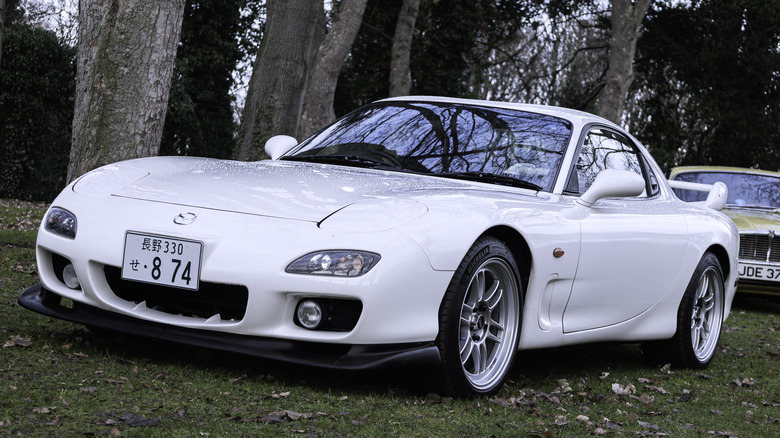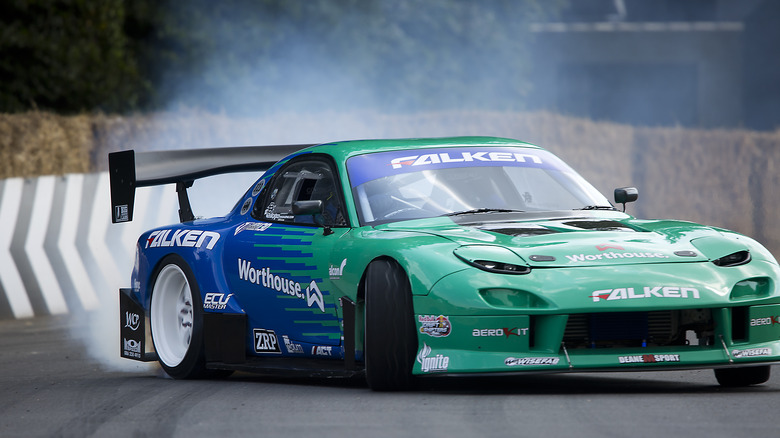Here's What Mazda's 'RX-7' Abbreviation Means
Japan's Mazda RX-7 is a JDM icon and was quite an unusual vehicle when it was introduced in 1978. With its unique Wankel rotary engine, it was capable of hitting 120 mph and boasted a displacement of 2,292 cm3. Specs-wise, it wasn't the greatest powerhouse of its time (though some vehicles in the RX family were certainly very powerful), but it offered a unique twist on the concept of the sports vehicle as other markets and manufacturers knew it.
Approximately 500,000 of the vehicle were sold, a testament to the successful way it blended practicality and performance, the style of a sports car with the driveability, svelte shape, and modest weight of an everyday driver. The latter virtue is largely due to the small engine, which is optimally placed in the front of the vehicle. This engine, indeed, is central to the vehicle's unique design and even inspired the abbreviation RX-7 itself.
It's difficult to pin down one irrefutable meaning of the term. It's suggested that the abbreviation denotes the vehicle's status as a rotary sports car, these words giving rise to the R and X (sports), respectively. This may be the case, but there's also a little more to the story than that.
Another potential meaning for the RX-7 abbreviation
In the case of Mazda's earlier RX-3, the abbreviation was a reference to the vehicle's status as the company's third Rotary eXperiment. As such, it would make perfect sense for the RX-7, which followed five years later, to be Rotary eXperiment/eXperimental 7.
Both definitions, however, make it clear that the vehicle is named in part for its most innovative and characteristic feature: Its rotary engine. The RX-7, in fact, was the most popular rotary vehicle ever made. Its unusual powertrain packed a lot of power and was further enhanced as new models in the RX-7 family were introduced. The generation two RX-7, which arrived in 1985, was available in a Turbo II model capable of reaching 143 mph and could output 182 hp.
Sometimes, manufacturers' "experiments" will be intentionally outlandish, unique for uniqueness's sake rather than practical. There's no denying, however, that Mazda achieved something very special with its Wankel engine concept. The company hasn't produced a rotary vehicle since the formidable RX-8, which ceased production in 2012 after almost a decade. There may still be potential for another such vehicle to make its own mark on the auto world in the future.

